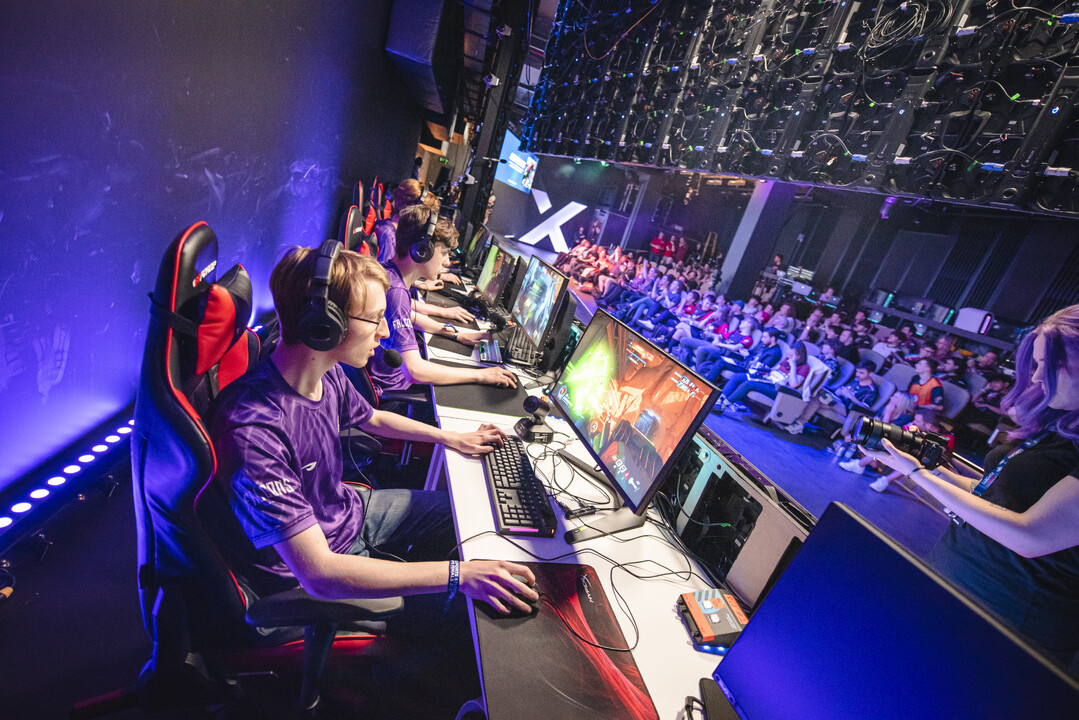Esports Games: The Evolution of Competitive Gaming in the Digital Age
Esports has quickly grown from a niche sport to an international phenomenon that has captured the public's attention with millions of followers all over the world. What began as a casual game games has turned into a professional multi-billion-dollar market, featuring top players and teams competing in international tournaments to earn fame and substantial financial rewards. Electronic sports, commonly referred to as electronic games comprise organized and games that are competitive, with popular titles such as League of Legends, Dota 2, Fortnite, and Counter-Strike: Global Offensive dominating the game. The games have produced the most unique combination of technology, entertainment, and sports, making it one of the hottest sectors of the current era.  One reason for the explosive growth in esports is the advancement in the gaming industry and connectivity to the internet. As the speed of internet connectivity increases, internet, and the development of powerful gaming systems the esports game has grown more competitive and accessible. Participants no longer require be physically in the same location for competition; they are able to take part in tournaments around the world by playing from home and challenge rivals from all over the world. Technology advancements have made it possible for the formation of massive online communities, where players can develop their skills as well as connect with their peers and build careers within the world of esports. The competitive nature of esports has contributed to its explosive growth. Games in esports have been designed to focus on skills as well as teamwork, strategy and providing players with the opportunity to compete in a competitive playing field. Contests and tournaments in both offline and online formats, have become major events featuring professional athletes and teams competing for huge prize pools. These events, like The International for Dota 2, the League of Legends World Championship and the Fortnite World Cup have captured the attention of many making esports the forefront of entertainment business. The competitive aspect of these games also drives advancement in gameplay that keeps gamers engaged and always looking for ways to enhance their performance. Esports are gaining popularity and have resulted in substantial investment from sponsors, advertisers and media organizations, expanding its reach. Many large corporations, like large corporations in technology as well as consumer brands are recognizing the potential of esports for reaching a young, tech-savvy audience, leading to lucrative sponsorship deals and partnerships. Gaming companies, streaming platforms as well as traditional sports networks have joined on the esports bandwagon with a wide coverage of tournaments and events. These partnerships have not only brought esports to the forefront of attention but also have contributed to an increase in professionalism of the field as teams, players and even organizations receiving money to engage in gaming as a full-time job. To receive extra information please website link
One reason for the explosive growth in esports is the advancement in the gaming industry and connectivity to the internet. As the speed of internet connectivity increases, internet, and the development of powerful gaming systems the esports game has grown more competitive and accessible. Participants no longer require be physically in the same location for competition; they are able to take part in tournaments around the world by playing from home and challenge rivals from all over the world. Technology advancements have made it possible for the formation of massive online communities, where players can develop their skills as well as connect with their peers and build careers within the world of esports. The competitive nature of esports has contributed to its explosive growth. Games in esports have been designed to focus on skills as well as teamwork, strategy and providing players with the opportunity to compete in a competitive playing field. Contests and tournaments in both offline and online formats, have become major events featuring professional athletes and teams competing for huge prize pools. These events, like The International for Dota 2, the League of Legends World Championship and the Fortnite World Cup have captured the attention of many making esports the forefront of entertainment business. The competitive aspect of these games also drives advancement in gameplay that keeps gamers engaged and always looking for ways to enhance their performance. Esports are gaining popularity and have resulted in substantial investment from sponsors, advertisers and media organizations, expanding its reach. Many large corporations, like large corporations in technology as well as consumer brands are recognizing the potential of esports for reaching a young, tech-savvy audience, leading to lucrative sponsorship deals and partnerships. Gaming companies, streaming platforms as well as traditional sports networks have joined on the esports bandwagon with a wide coverage of tournaments and events. These partnerships have not only brought esports to the forefront of attention but also have contributed to an increase in professionalism of the field as teams, players and even organizations receiving money to engage in gaming as a full-time job. To receive extra information please website link 